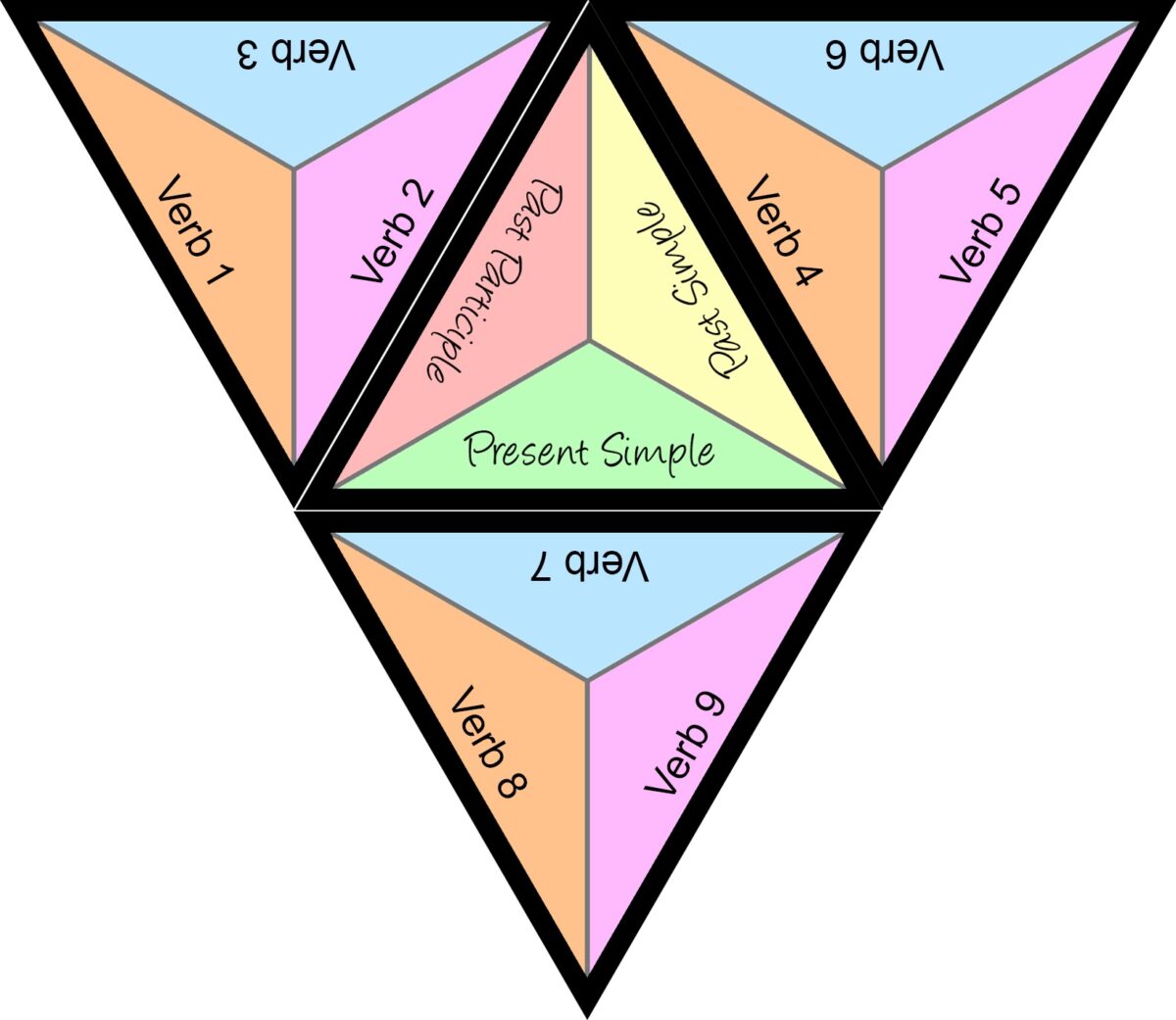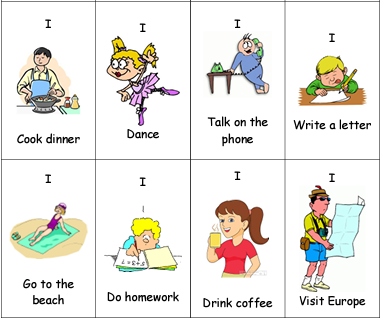This is a triangle game, based on Big Potato’s ‘P for Pizza’, which is also a great game for English classes, but students need a reasonable level to play it, so this version is good to get them towards that level, and have a little fun during the long and laborious process of learning irregular verbs.
The cards are double-sided. I have designed the pages so that if you have a printer that does double-sided printing, you can just press go and print all the cards fairly easily. They should line up perfectly, then you can laminate and cut them out. Otherwise, if you print them out single-sided, you can glue the two pieces of paper back-to-back, laminate and cut out as mentioned previously.
You will have 40 cards in total. My cards have Spanish verbs on, but you can change them to the native language of your students. For example, if you are an EAL/EFL teacher in France, you might put the verbs in French for your classes. If you are teaching Arabic students, put the verbs in Arabic etc. The verb side of the cards is editable, so you can change them easily.
How to play
Lay out the cards as in the photo.
The card in the centre represents the entire pack, with one card from the top placed on each side.
The idea is that you have to say the verb in the tense stated. For example, in this illustration, players would have to say the past participle of verb 2, the past simple of verb 4 or the present simple of verb 7.
The player who says the correct verb tense any of the 3 verbs first, takes the corresponding card and another card is taken from the top of the deck to replace it.
The winner has more cards at the end of the game.
If you want to encourage students to use all tenses, you can allocate points instead… 1 point for present simple, 2 for past simple and 3 for past participle. Or you could add a rule that you can’t use the same verb tense consecutively. This will stop student that only know present tense meanings cleaning up!
I have included a verb list that you can make available to scaffold students in the earlier stages, or give them to take home and learn the verbs, as being in a position to win might motivate them for self-study!
Downloads
Download the editable word document here : https://classroomgames.net/product/tessellation-station/


